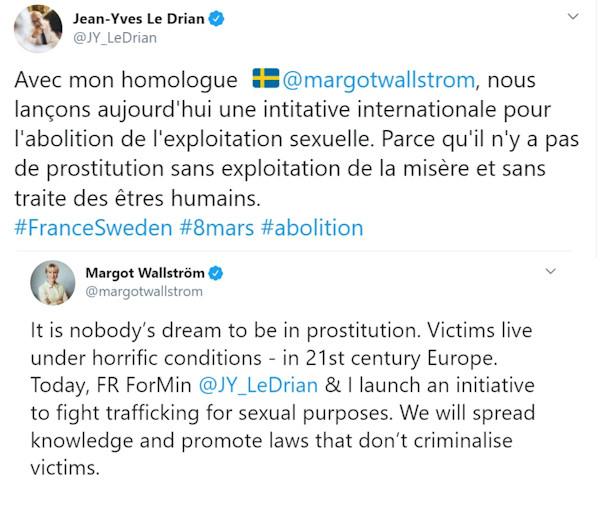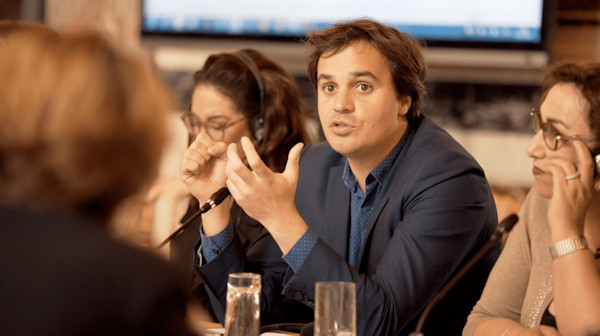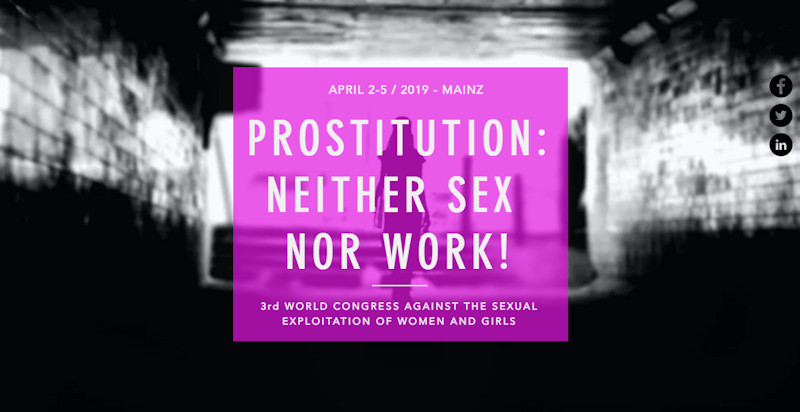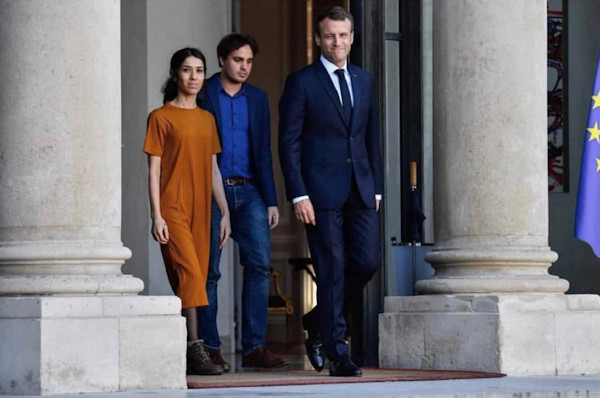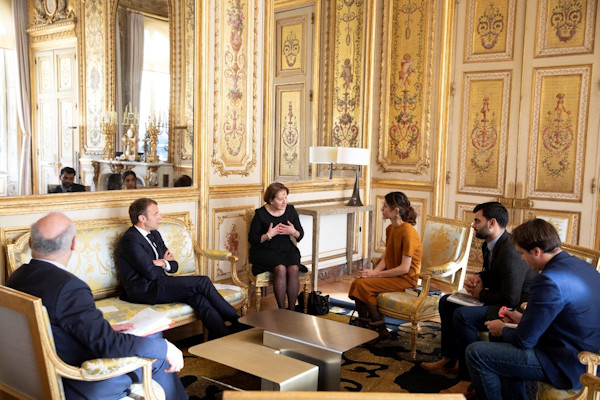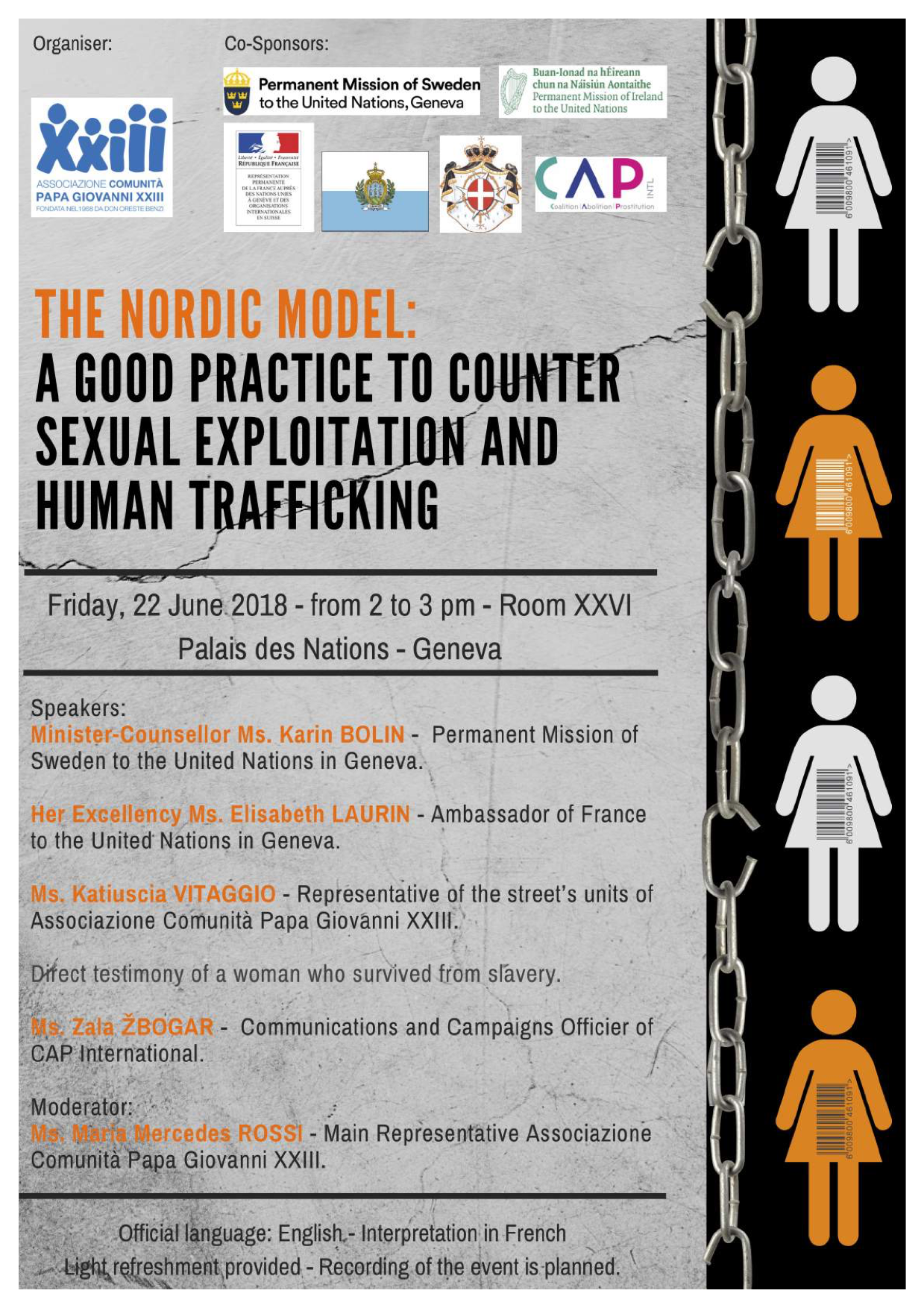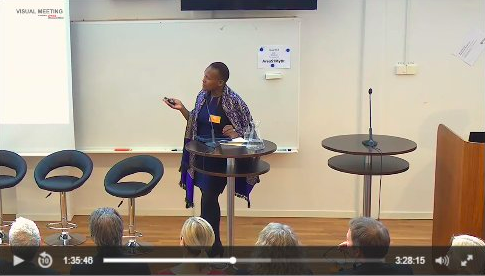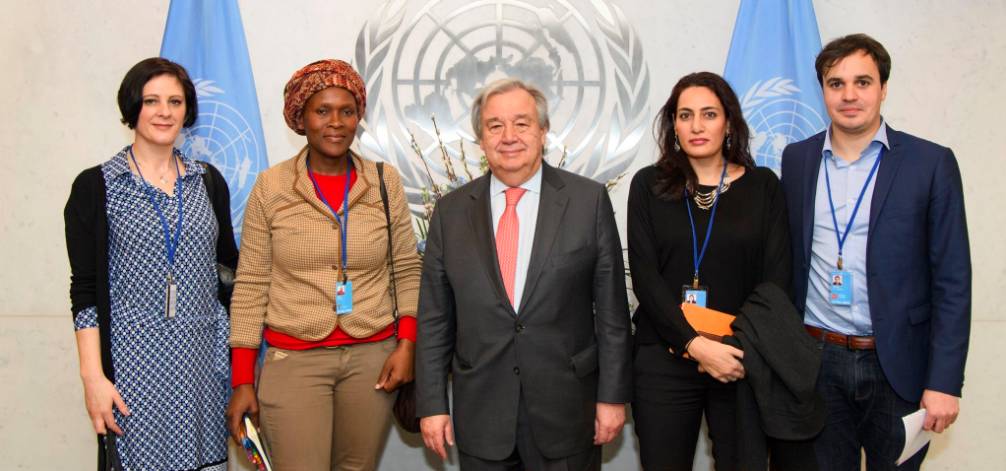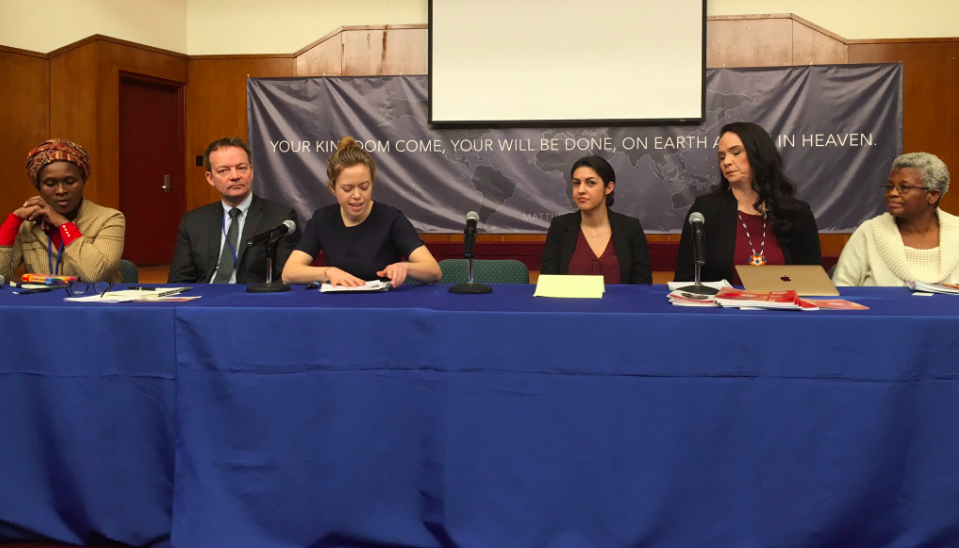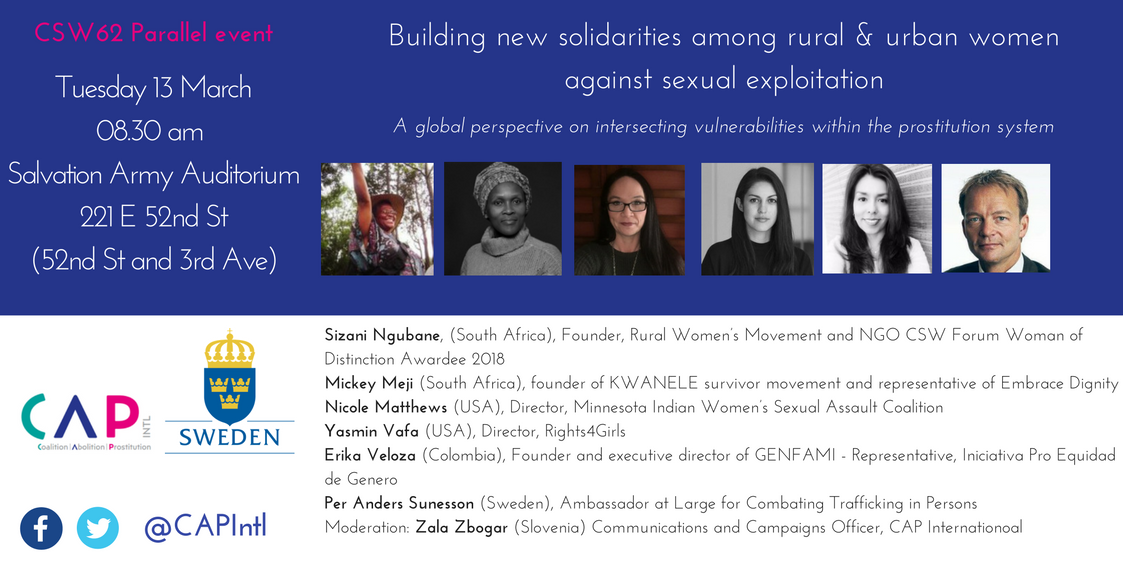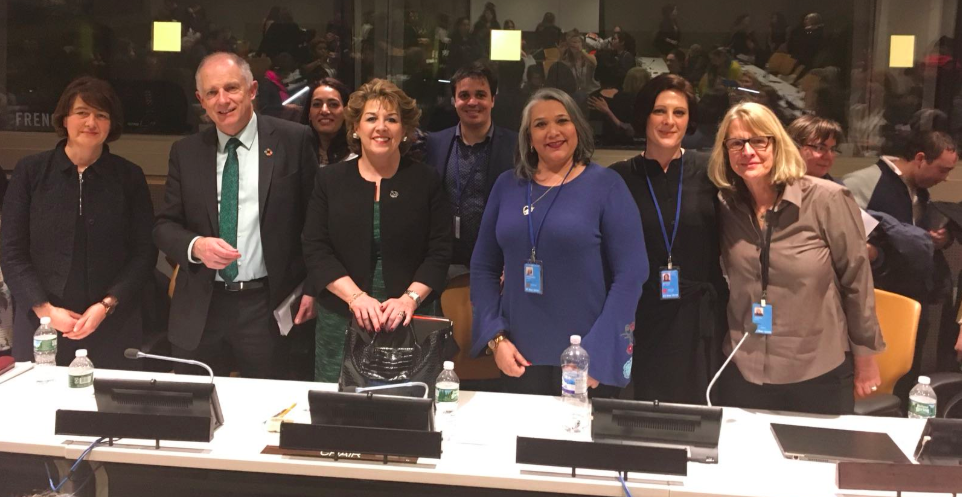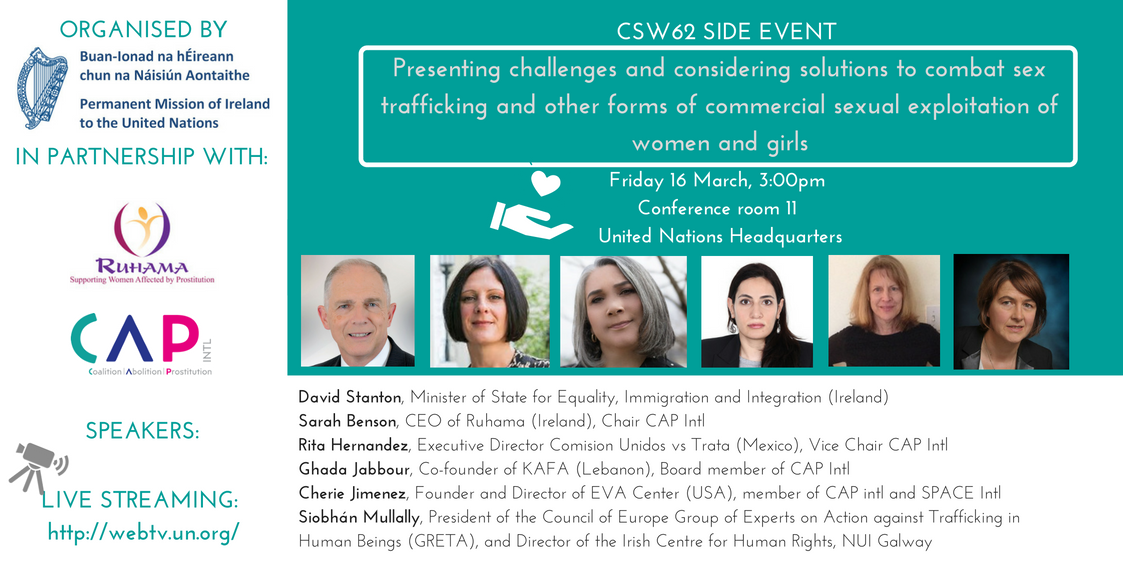Letter from 85 NGOs calling on ILO Standard Setting Committee to refrain from using language of “sex work” or “sex workers” in the ILC Conclusions on ending violence and harassment in the world of work
The International Labour Conference took place in early June in Geneva, Switzerland. Within this context, there were developments in the ongoing negotiations on developing standard setting tools to combat violence and sexual harassment in the workplace. Below is a closed letter that 85 NGOs co-signed relating to the proposed conclusions of the Standard Setting Committee.
——
Re: NGOs working for women’s rights and against gender-based violence call on ILO Standard Setting Committee to refrain from using language of “sex work” or “sex workers” in the ILC Conclusions on ending violence and harassment in the world of work.
30 May 2018
Dear Delegates of the Standard Setting Committee,
We welcome the standard setting process on violence and harassment, and your work as members of the committee currently negotiating this standard at the International Labour Congress in Geneva.
In particular, we welcome all efforts to strengthen the fight against gender-based violence and sexual harassment in the workplace. This protective convention on ending violence in the workplace will provide a key contribution toward global and collective efforts to combat gender-based violence in our societies.
We support and welcome the wording of the proposed conclusions as they stand so far, as listed in Ending violence and harassment in the world of work: Report V (2) (hereafter “Report V(2)”) submitted to the Conference.
We are, however, concerned about an attempt by a few organisations and 2 trade unions to instrumentalise and dismantle this progressive and powerful standard-setting process, through an attempt to trivialise a severe form of economic and sexual exploitation: namely, the exploitation of the prostitution of women.
Our concerns stem from the following responses given to Questions 34 and 49, as echoed in Report V(2), which show that there is an attempt to include terminology on “sex work” or “sex workers”, in particular as an item in point 10(b) of the proposed conclusions:
- Question 34, Office commentary: “A few governments and workers’ organizations propose the inclusion of additional sectors, such as agricultural work, hotel and catering, mining, sex work, construction, and sectors where women make up the majority of the workforce.” (pp.73)
- Question 49, comments and Office commentary: “CTC (Colombia), CUT (Colombia): Protection against violence and harassment arising from unionized activity; inclusion of informal economy workers and sex workers” (pg. 95, Report V2) “Two workers’ organizations suggest the express inclusion of sex workers”. “In addition, the Office clarifies that sex workers are included under the definition of “worker” provided in point 3(d) of the proposed Conclusions” (pg. 96, ReportV2).
We, the undersigned, affirm that prostitution is neither sex, nor work, but a form of sexual and economic exploitation. We urge all parties to maintain the current proposed conclusions, and reject the inclusion of an explicit reference to “sex work” or “sex workers” in this progressive standard-setting instrument.
In the annex below you will find our analysis of (i) why the prostitution of others is a system of economic and sexual exploitation of the most discriminated groups; (ii) why it is a significant obstacle to the right to physical integrity and health, (iii) how paying for sex is an abuse of power, (iv) how the concept of “sex work” fosters a culture of sexual exploitation and is incompatible with labour law and the prohibition of sexual harassment in the workplace; (v) how it is a violation of human rights and a fundamental obstacle to decent work and (vi) how legalising “sex work” through the decriminalisation of pimps, procurers and buyers increases the harms of prostitution and the profits of exploiters.
We remain at your disposal for any further information required.
Sincerely,
CAP International and its members:
CAP International
Apne Aap, India
Breaking Free, USA
Embrace Dignity, South Africa
EVA Center, USA
EXIT Finland
Fondation Scelles, France
Iniciativa Pro Equidad de Genero, Colombia
KAFA, Lebanon
KFUKs Sociale Arbejde, Denmark
La CLES, Canada
Maiti Nepal
Malos Tratos, Spain
Marta Center, Latvia
Medicos del Mundo, Spain
Mouvement du Nid, France
People Serving Girls at Risk, Malawi
SOLWODI, Germany
South Kolkata Hamari Muskan, India
Reden, Denmark
Ruhama, Ireland
Talita, Sweden
Unidos vs Trata, Mexico
Women@thewell, UK
International networks:
Coalition Against Trafficking in Women (CATW)
Coalition Against Trafficking in Women – Asia Pacific (CATW-AP)
Coalition Against Trafficking in Women – Latin America and the Caribbean (CATW-LAC)
Congregation of Our Lady of Charity of the Good Shepherd (Global)
Equality Now
European Network of Migrant Women
European Women’s Lobby
Domestic NGOs:
1000 Möjligheter, Sweden
Abolition 2014, Germany
Associazione Iroko Onlus, Italy
Awaken, USA
Belgian Women’s Council, Belgium
Build a Girl Project, UK
Bulgarian Platform of the European Women’s Lobby, Bulgaria
Caritas Social Action Network, UK
Central Arizona National Lawyers Guild
Conseil international des femmes – International Council of Women
Conseil national des femmes françaises (CNFF), France
Conseil National des Femmes du Luxembourg, Luxembourg
Equipes d’Action contre le Proxénétisme, France
For a world without prostitution, Germany
Fundación Camino a Casa, Mexico
Fundación Karla de la Cuesta, Mexico
The Greek Coordination, Greece
Hungarian Women’s Lobby, Hungary
Immigrant Council of Ireland, Ireland
Initiative Féministe Euromed IFE-EFI
Institute of Our Lady of Mercy, UK
Institute for Gender, Law and Development, Argentina
isala asbl, Belgium
Judith Trust, UK
Klaipeda Social and psychological support center, Lithuania
Kofra (Kommunikationszentrum für Frauen), Germany
Kwanele Survivor Movement, South Africa
L’Amicale du Nid, France
Libres Mariannes, France
Malta Confederation of Women’s Organisation (MCWO), Malta
Mémoire Traumatique et Victimologie, France
Monde selon les femmes, Belgium
National Alliance of Women’s Organisations, UK
National Board of Catholic Women, UK
Network of East West Women, Poland
nia, United Kingdom
O Ninho, Portugal
Portuguese Platform for Women’s Rights, Portugal
Realstars, Sweden
Regards de femmes, France
Romanian Women’s Lobby, Romania
Scientists for a World Without Prostitution, Germany
Slovak Women’s Lobby, Slovakia
Space Allies, Japan
Stockholm UN Association, Sweden
Survivors for Solutions, USA
Swedish Women’s Lobby, Sweden
Terre des Femmes, Germany
Unizon, Sweden
Women’s Association “IZVOR”, Croatia
Women’s Democratic Movement, Portugal
Women’s Front, Norway
Women’s Network Croatia
World Without Exploitation, USA
Contact person: Gregoire Thery, gregoire@cap-international.org
Annex: Prostitution of others: neither sex, nor work, but a lucrative system of sexual exploitation and abuse that jeopardise efforts toward achieving gender equality and social justice.
I- A system of economic and sexual exploitation of the most discriminated groups
All over the world, and throughout history, the most systemically disadvantaged groups have been overrepresented in sexual exploitation and prostitution. Prostitution is a highly gendered and patriarchal system that disproportionately impacts the poorest women and young children.
Victims of incest and sexual violence, indigenous women and children, low caste communities, migrant women and children, and women and girls from ethnic minorities are still the primary victims of sexual exploitation by pimps, traffickers and sex buyers.
In Canada, First Nations women are disproportionately affected by prostitution. Research carried out in Vancouver found that 52% of interviewed prostituted persons were indigenous people, despite representing less than 7% of the population of Vancouver.
In India, women and girls from low castes, indigenous communities, or from the poorest communities of Nepal, represent the vast majority of prostituted persons and victims of sex trafficking. The International Dalit Solidarity Network estimates that “most girls and women in India’s urban brothels come from Dalit, lower-caste, tribal, or minority communities”. In 2007, Anti-Slavery International found that “93% of Devadasi (religiously backed prostituted persons) were from Scheduled Castes (Dalits) and 7% from Scheduled Tribes (indigenous) in India”.
In Western Europe, an overwhelming majority of prostituted persons are migrant women coming from poorer EU (Romania, Bulgaria) or non EU (Albania, Nigeria, China) countries.
The profits from the prostitution of others are concentrated in the hands of a very small minority of individuals and businesses directly involved in, or related to, organized crime. Prostitution is a very lucrative market, based on exploitation of some of the most socially and economically vulnerable people and the enrichment of exploiters. In 2015, the French research Prostcost, showed that prostitution in France costs at least 1.6 billion euros to French society and that the lion’s share of the 3.2 billion euros’ profit from prostitution falls into the hands of exploiters. Prostitution is thus an activity that maximizes the private profits of pimps and traffickers while imposing a direct harm on prostituted persons and a serious social and economic cost on communities and States.
II- A significant obstacle to the right to physical integrity and health
Prostitution is a direct and significant obstacle to the right to integrity and health. Indeed, prostitution is the antithesis of the World Health Organisation’s definition of “sexual health”: “a state of physical, emotional, mental and social well-being in relation to sexuality”, which requires “a positive and respectful approach to sexuality and sexual relationships, as well as the possibility of having pleasurable and safe sexual experiences, free of coercion, discrimination and violence.”
Historically, the sexual health focus within prostitution has been limited to minimizing the transmission of Sexually Transmitted Diseases (STDs). However, we also know that the harm of prostitution extends far beyond the risk of STDs, to intrinsic physical and psychological damage related to:
- The sexual violence of prostitution in itself: repetitive (often long term), anonymous bodily invasion;
- Recourse to psychological or chemical (with drugs or alcohol) dissociation in order to cope with this bodily invasion;
- The over-exposure to other physical and psychological violence (murder, beatings, rape, assault), primarily perpetrated by sex buyers and pimps;
- The extreme levels of stress caused by the activity itself and by the permanent fear of being raped or attacked, contracting an STD, or being denounced to the police etc.
Studies of sufferers of post-traumatic stress disorder in the US rate the severity of condition in those involved in prostitution as “enormously high”. To put that into context, this is even higher than among Vietnam veterans seeking treatment for the condition. Further, two thirds of women in prostitution report suffering from post-traumatic stress disorder (compared with 5% of the general population).
In March 2013, the French Institute for Public Health Surveillance (InVS) published the results of its research on the “health, access to healthcare and access to rights of the people in a situation of prostitution met within social and medical structures”, which showed that prostituted persons:
- Suffer rape at incidence rates that are at least 6 times greater than for the general population;
- have 7 times more suicidal thoughts than the general population;
- take 4.5 times more anti-depressant and anti-anxiety medication than the general population.
III- Paying for sex is an abuse of power
In a world of growing economic inequalities, paying for sex means exploiting the precariousness and vulnerabilities of another person, using money to purchase consent from someone who is in – often desperate – financial need.
In his 2003 Special Bulletin on the Prevention of Sexual Exploitation and Abuses, the United Nations Secretary General, Kofi Annan, rightly highlighted the notion of “differential power” and consequently prohibited the purchase of sex by UN personnel. “The term “sexual exploitation” means any actual or attempted abuse of a position of vulnerability, differential power, or trust, for sexual purposes, including, but not limited to, profiting monetarily, socially or politically from the sexual exploitation of another. Similarly, the term “sexual abuse” means the actual or threatened physical intrusion of a sexual nature, whether by force or under unequal or coercive conditions. Exchange of money, employment, goods or services for sex, including sexual favours or other forms of humiliating, degrading or exploitative behaviour, is prohibited.”
IV- The concept of “sex work” fosters a culture of sexual exploitation and is incompatible with labour law and the prohibition of sexual harassment in the workplace
Profiting from another’s prostitution and paying for sex take place in the broader context of continuing gender inequality. Prostitution cannot be segregated from the patriarchal continuum of sexual violence, nor from the historic male privilege of accessing and controlling women’s bodies (droit du seigneur, rape, marital rape, sexual harassment and incest, as well as prostitution). The right to safety and physical integrity cannot not be guaranteed to women and girls when men are permitted to impose sex acts by force, psychological pressure, or financial constraint.
A strong labour rights position which, for example, prohibits employers from seeking sexual favours from employees in exchange for promotions or bonuses is not compatible with the concept of “sex work”, which endorses the notion that men can pay women in exchange for sex. The prohibition of sexual harassment does not hold if it becomes possible under labour law to buy the consent of another person for sex.
More generally, if physical contacts with a sexual intention or connotation in the workplace are unambiguously defined as “sexual harassment”, it is absurd and dangerous to advocate that the systematic penetration of another person could be organized in a working environment. Accepting prostitution as ‘conventional work’ for some, repudiates the need to protect all workers from sexual harassment.
V- A violation of human rights and a fundamental obstacle to decent work
Prostitution is recognized in universal human rights law as an inherent violation of human dignity: “Whereas prostitution and the accompanying evil of the traffic in persons for the purpose of prostitution are incompatible with the dignity and worth of the human person and endanger the welfare of the individual, the family and the community”. (UN Convention for the suppression of the traffic in Persons and the Exploitation of the Prostitution of Others (1949)
The qualification of prostitution as a violation of human dignity is crucial since the protection of the dignity and worth of the human person is a cornerstone of the entire international human rights system and law.
The United Nations System, including the International Labour Organisation, are bound by constituent treaties that place respect and the promotion of human dignity at the heart of their mandates. Thus, the ILO is explicitly not authorised to promote the concept of “sex work”. Prostitution is incompatible with human dignity and cannot be categorised as “work”, and even less a form of “decent work”.
VI- Legalising “sex work” through the decriminalisation of pimps, procurers and buyers increases the harms of prostitution and the profits of exploiters
Ignoring the inherent harms of prostitution, and being well aware of the huge potential tax income from the commercial sex trade, several countries have tried to introduce a theoretical distinction between legitimate “sex work” and illegal “trafficking in human beings”. In doing so, they argued that they would improve the working conditions of prostitution through legalisation and thus control over its exploitation.
In October 2000, the Netherlands decided to legalise “sex work”, and lifted the 1911 ban on brothels. Since then, several studies from the Scientific Research and Documentation Centre of the Ministry of Justice (WODC) and from the national police force (KLPD) have studied the impact of the decriminalization of procuring in the Netherlands. They show that “legalisation of sex work” has not improved the situation of prostituted persons. On the contrary:
- The overall situation of persons in prostitution has, in fact, worsened;
- “The prostitutes’ emotional well-being is now lower than in 2001 on all measured aspects”;
- “The use of sedatives has increased”;
- 50% to 90% of the women working in licensed brothels do so “involuntarily”;
- Organised crime has taken control of the legal sector of the sex industry;
- Decriminalising procuring and legalising the sex industry has not prevented an increase in ‘hidden’ or ‘illegal’ prostitution”.
In May 2013, Der Spiegel released a 30-page dossier called “Brothel Germany: how the State promotes trafficking in women and prostitution”. The newspaper’s analysis is explicit: “When Germany legalized prostitution just over a decade ago, politicians hoped that it would create better conditions and more autonomy for sex workers. It hasn’t worked out that way, though.” On the contrary, the research concludes that “the well-meaning law is in fact little more than a subsidy program for pimps and makes the market more attractive to human traffickers.”
